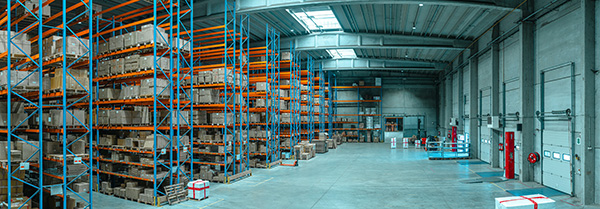AI is enabling manufacturers to optimize processes, reduce waste and innovate in ways that were previously unimaginable.
by Mikko Urho, CEO, Visual Components
The manufacturing industry is undergoing a significant transformation, driven by the integration of artificial intelligence (AI) into various production processes. According to Market.US, the global AI in manufacturing market is set for rapid expansion. Projections indicate a significant rise in market value from $3.8 billion in 2023 to $156.1 billion by 2033, representing a compound annual growth rate (CAGR) of 45%. But what is driving this significant increase in uptake? AI is increasingly becoming a crucial component in enhancing manufacturing efficiency, accuracy and decision-making capabilities.

AI-powered technology is permeating the manufacturing sector, and it’s proving to be the perfect complement to 3D simulation software. 3D simulation via a digital twin is already helping to drive efficiencies across the entire factory floor. It works by fully replicating the individual processes and interrelationships between every piece of machinery, which includes robotics and collaborative robots (cobots). Users can experiment with layouts and configurations in a risk-free sandbox environment before they are applied to a real setting.
AI is crucial here because it help to detect faults throughout the simulated production process. This could be defects in parts or materials, that, if went unnoticed, could lead to the mass production of items that then have to be discarded. This doesn’t just incur unnecessary costs, but also leads to wasted materials that may have to be sent to landfill, which in turn can negatively impact a manufacturer’s environmental, social and governance (ESG) credentials.
In addition, AI’s ability to analyze vast amounts of data in real-time means that it can predict bottlenecks or inefficiencies before they occur, allowing for proactive adjustments and improved decision-making. For example, it could be as simple as an AGV following an unnecessarily long route when transporting pallets from one section of a warehouse to a production line.
AI can help generate a design alternative, where the AGV takes a shorter, quicker path to its destination. This change can make a big impact in getting items into production quicker and into the supply chain so they can ultimately be sold to end consumers. This also has benefits in terms of sustainability by helping to save energy.
AI’s capabilities can also play into the proposal creation phase. With users able to devise a faster and simpler production process within an AI-powered simulation software system, they can present new plans or ideas with other employees or clients at the earliest opportunity.
AI can also serve to enhance the manufacturing sector by helping to plug the skills gap. The manufacturing sector in the US is rapidly growing, and as many as 3.8 million net new employees will be needed between 2024 and 2033 to meet demand. If the talent issue is not solved, around half of these vacancies could remain unfilled.
Traditionally, the use of advanced tools and technologies in manufacturing, such as 3D simulation software and complex programming interfaces, has required skills that only specialist workers have possessed. Rather than replace human talent, AI can lower the threshold for people to learn and utilize new technologies.
With AI-powered user interfaces, users can benefit from intuitive, guided experiences that allow workers with minimal technical background to engage with sophisticated tools effectively. By correcting errors and offering explanations, this accelerates the learning curve for graduates and more inexperienced workers. Employees can be empowered to take on more advanced roles, but integration of AI also encourages a culture of continuous improvement and learning within a wider organization.
The integration of AI into the manufacturing industry is proving to be a transformative force that is reshaping the landscape of production. With projections indicating explosive growth in the AI manufacturing market, it is clear that AI will play an increasingly vital role in enhancing accuracy and decision-making across the sector. By complementing 3D simulation software, AI is enabling manufacturers to optimize processes, reduce waste and innovate in ways that were previously unimaginable.
AI’s impact also extends beyond technological advancements; it’s instrumental in addressing the critical skills gap within the industry. By making advanced tools more accessible and user-friendly, AI empowers a broader range of workers to participate in and contribute to complex manufacturing tasks. Organizations can benefit from increased productivity and a culture of continuous learning and improvement, ensuring the workforce evolves alongside the industry’s technological advancements.
As AI continues to permeate the manufacturing sector, its influence will only grow, paving the way for smarter, more efficient and more sustainable manufacturing practices.

Mikko has an extensive career at Visual Components, dating back to the year 2000 as a summer trainee. He became CEO on the company in March 2021. His vast experience includes direct sales, building a world-wide partner network, and managing reseller channels. He is well known and respected by many of Visual Components’ partners and customers around the globe.
Scott Ellyson, CEO of East West Manufacturing, brings decades of global manufacturing and supply chain leadership to the conversation. In this episode, he shares practical insights on scaling operations, navigating complexity, and building resilient manufacturing networks in an increasingly connected world.